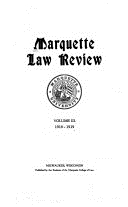Israel Reflections 2019 – Yad Vashem
 The day after our interesting trip to Palestine we visited Yad Vashem, Israel’s holocaust memorial. Many of the students on the trip had learned about the Holocaust in school and visited the Holocaust museum in D.C., but nothing could really prepare them for this experience. In advance, I had each student research someone on the Avenue of the Righteous to understand choices made during World War II. Jordan Janikowski thought:
The day after our interesting trip to Palestine we visited Yad Vashem, Israel’s holocaust memorial. Many of the students on the trip had learned about the Holocaust in school and visited the Holocaust museum in D.C., but nothing could really prepare them for this experience. In advance, I had each student research someone on the Avenue of the Righteous to understand choices made during World War II. Jordan Janikowski thought:
One beautiful memorial that served as a beacon of hope was the Avenue of the Righteous, a garden of trees dedicated to individuals and families who risked their lives in order to help save others during the holocaust. This serves as a reminder that we all need to take responsibility in standing up for others although it is still incomprehensible how such an inhumane tragedy could have occurred, there are many parallels to today’s society. It is important that we continue to educate ourselves about the past to ensure that these kinds of atrocities never happen again.
One of the many breathtaking moments in the museum at the end in the Hall of Names. Kelly Krause noted:
As you stand on a platform, pictures of 600 Jewish victims are above you and below the platform is a well. Around you there are binders that contain approximately 2.2 million pages of testimony about the more than 6 million Jews who perished in the Holocaust. Sadly the room is not full, recognizing that some of the names of those who perished have not been discovered..In this room I felt the impact and scale of the Holocaust far more than any museum, film, or book has made me feel before. Exiting this room, you once again walk into light, but this time it’s the light from the view of the State of Israel. This view of the Jewish state looks different than the one when you entered the museum, in more ways than one.
Before we left Yad Vashem we heard from Professor Amos Hausner, son of Gideon Hausner, the lawyer who prosecuted Adolf Eichmann. Professor Hausner spoke to the students about the trial, and international criminal justice reform. Steve Deguire reflected on one particular remark:
His father felt the prosecution and execution of Eichmann had not been successful because he saw no indications of a deterrence effect from the trial in preventing genocides…This statement remains true to this day with modern day genocides, (i.e. Myanmar, South Sudan, and Central Africa); the handful of prosecutions to actually occur will not be sufficient to deter genocide. The example provided by the Eichmann trial will remain a standard for the international criminal justice system when dealing with genocide.
Cross-posted at Indisputably.org

 A quote from and a link to a student-written comment in the
A quote from and a link to a student-written comment in the